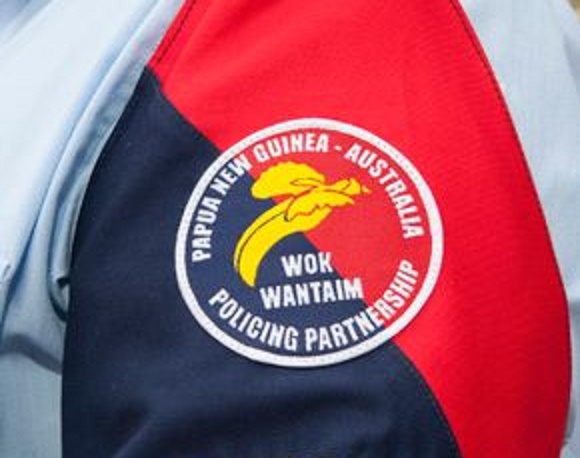 In an ASPI Special Report launched today, we explore options for future police engagement between Australia and Papua New Guinea.
In an ASPI Special Report launched today, we explore options for future police engagement between Australia and Papua New Guinea.
In July 2013, during negotiations to reopen the Manus Island detention centre, PNG Prime Minister Peter O’Neill asked Canberra to provide a significant Australian Federal Police contingent to work in publicly-visible roles alongside the Royal PNG Constabulary (RPNGC). In late 2013, fifty Australian Federal Police officers joined the 23 uniformed and civilian members already in PNG.
But just nine months into the new AFP deployment, PNG’s Police Minister, Robert Atiyafa, flagged a review, with a view to making major changes and potentially even winding it down. The visible policing aspect of the partnership appeared unable to meet community expectations made unrealistic by the AFP’s lack of legal protections and powers to make arrests, conduct investigations, or direct junior RPNGC counterparts. Given the current political turbulence surrounding allegations about O’Neill’s own links to a possibly corrupt law firm, he seems unlikely to risk political capital by mounting an uncertain and unpopular bid to change the PNG Constitution just to provide the AFP with greater immunities and powers.
Although we see much advantage in bringing forward the major progress review originally scheduled for late next year, we doubt it’ll find grounds to end the partnership. Rather, there are reasons to increase Australian investment in a program that’s starting to show benefits and which, with some reconfiguration, could have enormous value.
Already difficult law-and-order challenges in PNG are likely to deepen over the coming decade as socio-economic change continues apace. Pressures such as urbanisation, population growth, rising inequality, and a gap between galloping GDP growth and slowing street-level economic activity (as LNG revenue kicks in but construction trails off) signal welcome development but come with medium-term downsides.
This situation isn’t bad only for PNG; it also poses risks for our interests. Australia is served by a prosperous and successful PNG, given its proximity and location across our direct approaches, historical and personal bonds, trade and investment links, and international expectations we’d assist Port Moresby if it requested our help with instability. But the country’s enormous potential is undercut by poor governance, crime and corruption. Those factors impose high transactional and enforcement costs, but their indirect impacts are what limit companies from operating to their potential: a reputation for violence reinforces a vicious cycle whereby unemployment and crime harm the whole society. Violence has a human cost too. Proud, successful, Papua New Guineans told us they hoped their children wouldn’t return from studying overseas. If people like that feel under siege in their own streets, it’s hardly surprising less scrupulous neighbours plunder what they can and stash it overseas.
Improved law and order is, thus, one of PNG’s four crucial development ‘pillars’. And for us the increasing volume of legitimate traffic through PNG’s ports, airports and banks could cover transnational crime, trafficking, and money-laundering into Australia.
However, the main institution charged with fighting crime, the RPNGC, is poorly placed and insufficiently resourced to address PNG’s needs. Major reviews in 1984, 1993, and 2004 identified serious capability problems that have grown since. But while the long-term need is for large numbers of capable PNG—not Aussie—cops, simply churning out more Police College recruits might have little effect. Even if the force receives a promised funding boost, improvement will be tough to achieve without experienced supervisors, accommodation to house them, or the corporate support to perform their duties.
So what makes us think Australia can help when previous assistance has had such mixed results? Three reasons for that limited impact stand out: our fluctuating level of engagement, the scale of the task compared to the resources assigned, and the challenges of capacity-building in PNG. As the task of creating the police force required is a generational one, we recommend establishing an enduring strategic partnership able to deliver the sustainable progress intermittent collaborations haven’t provided. Although it’s imperative to strengthen other parts of PNG’s formal justice sector, and harness community-based customary restorative justice mechanisms too, a more capable, professional and responsive RPNGC is necessary for improved justice outcomes—even if it won’t be sufficient.
We present five options that can be tailored to suit Port Moresby’s appetite and Canberra’s pockets. While a model with executive powers, akin to the 2004/05 Enhanced Cooperation Program, remains the gold standard, we doubt it’s viable currently. Instead, we should increase assistance but focus more on training and organisational strengthening (in areas such as budget management) than on frontline duties. We also suggest six modernisation principles to help regardless of the size of the package.
Enhanced police cooperation is in the interests of both countries. What would help now is a clear statement of political support from both governments.
David Connery is a senior analyst and Karl Claxton is an analyst at ASPI. Image courtesy of Australian Federal Police.

